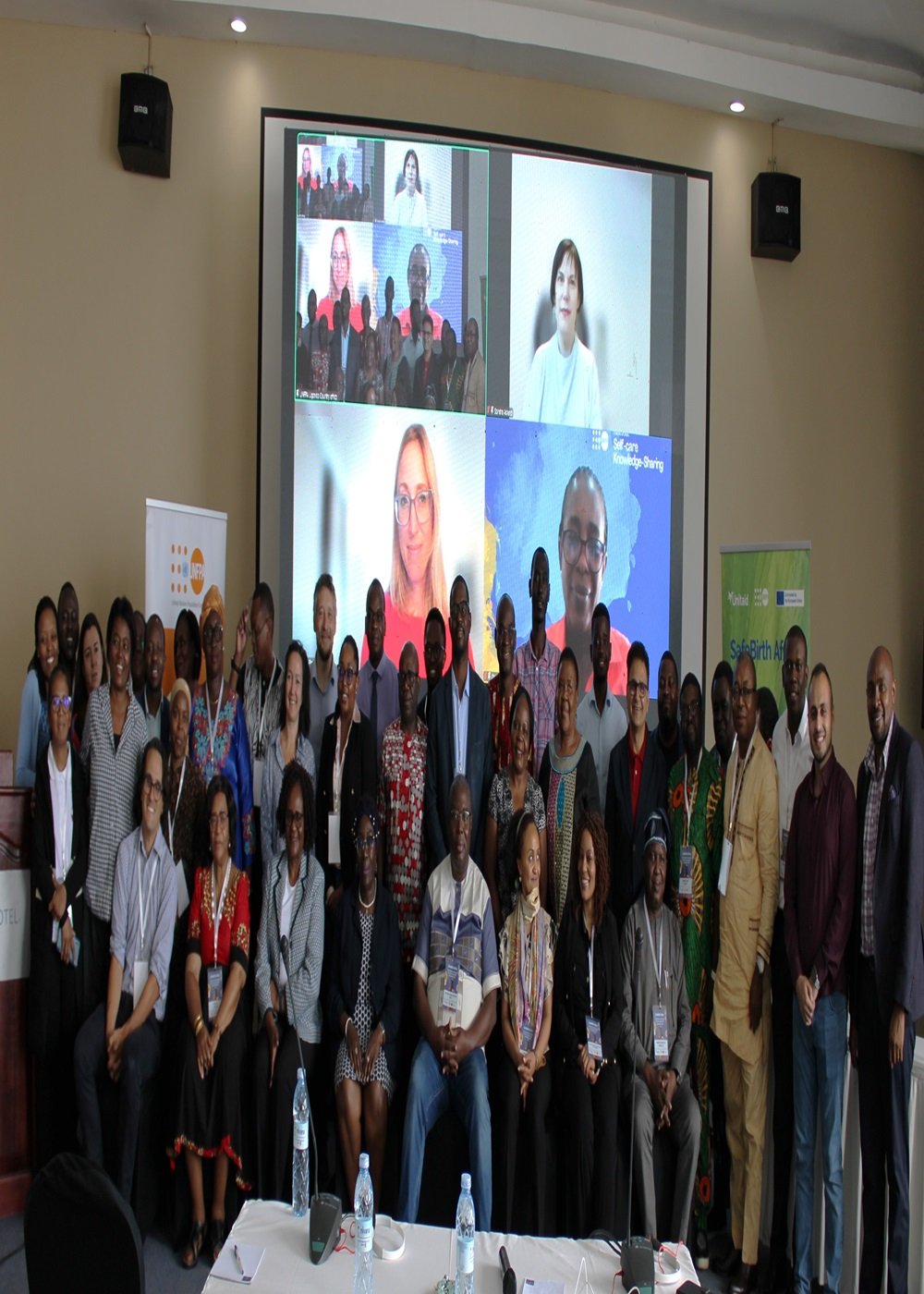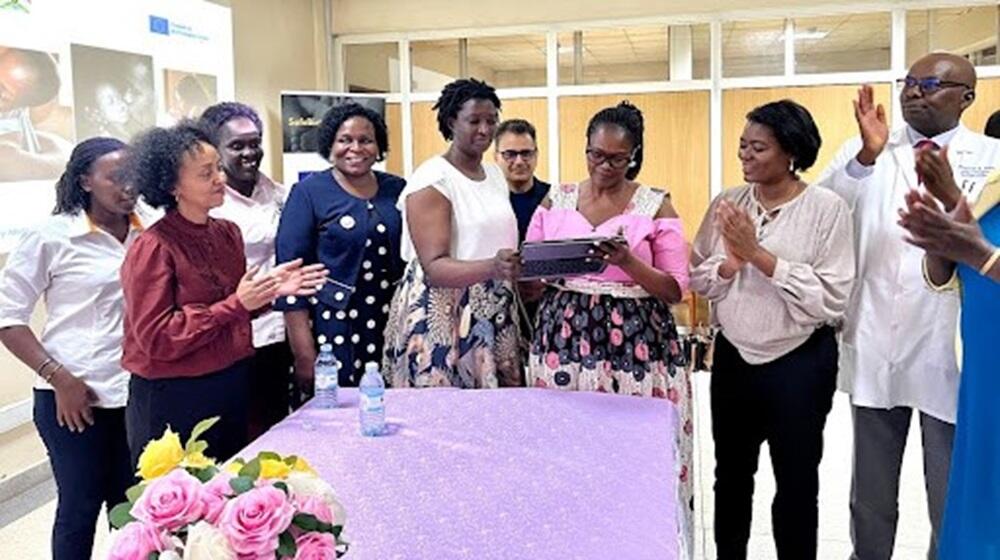Kampala, Uganda – The United Nations Population Fund (UNFPA), in partnership between UNFPA, Unitaid and the Eurpean Union launched the SafeBirth Africa (SBA) Project at Kawempe Referral National Hospital on July 31. This critical initiative aims to strengthen Uganda's health systems and accelerate access to life-saving medicines, representing a significant step toward ending preventable maternal deaths. Following its recent launch in New York, the project’s primary focus is on preventing deaths caused by postpartum hemorrhage (PPH), a leading cause of maternal mortality.
Uganda is one of five African countries benefiting from this groundbreaking initiative, receiving a US$ 1 million allocation as part of a broader €20 million grant from the European Union. This funding, managed by Unitaid in partnership with UNFPA, is dedicated to strengthening healthcare systems across Africa and accelerating access to critical medicines. The initiative specifically targets regions with limited healthcare access, aiming to make a significant impact in reducing maternal mortality and improving overall reproductive health outcomes.
Juliana Lunguzi, the Sexual Reproductive Health and Rights Programme Coordinator at UNFPA, emphasized the strategic selection of Kawempe National Referral Hospital as a project site, citing the high number of maternal deaths, many of which are due to complications like PPH.
“We aim to document the most effective ways to reduce this issue and gather evidence for better planning. Our focus is on ensuring that the necessary materials and medications are available, and on training midwives and doctors in new protocols for managing these cases,” Lunguzi stated.
During the launch, the Chief Guest, Muhanga Margaret, State Minister for Primary Healthcare, underscored the importance of advocating for safe motherhood, especially considering the high rate of teenage pregnancies in Uganda.
“We must return to our communities, partner with schools, and educate our children, especially those under 15, who often do not fully understand what is happening to them. Tragically, some are impregnated by their own relatives,” the Minister noted. “I urge mothers to talk to their children about the changes their bodies undergo and the consequences that may follow.”
Minister Muhanga also highlighted Uganda's rapid population growth, pointing out that the country is experiencing a population explosion, with 50.5% of young people under the age of 17 as per the recent census preliminary results.
Through the SBA Project, the Ministry of Health, in partnership with UNFPA, will work closely with health authorities, partners, and communities to overcome the obstacles that prevent access to life-saving medicines and solutions.
Uganda hosts co-creation meeting to shape projects strategic direction

To start the 36 months-long project implementation, UNFPA HQ together with UNFPA ESARO and WCARO convened a co-creation meeting with stakeholders to enhance understanding and alignment of the project's goals, objectives and context. Hosted by UNFPA Uganda the co-creation meeting gathered the different stakeholders involved from five countries including Nigeria, Zambia, Côte d’Ivoire, Madagascar and Uganda in partnership with SADC, EAC, and ECOWAS, in the planning and implementation of the project to develop a multi-year work plan with objectively measurable deliverables as per the Safe Birth Africa Results framework.
In her remarks, UNFPA Representative Ms Gift Malunga underscored the critical importance of addressing postpartum hemorrhage (PPH) at both the community, health facility and national levels.
“I am hopeful that through this project, Uganda and the other countries represented here will make significant strides in preventing maternal deaths by effectively addressing PPH.
“Let's be eager to learn and share experiences of what works and what can accelerate the reduction in complications and deaths of these mothers in our respective countries. We can not tire now as we race towards achievement of the 2030 SDG targets in the next six years,” she said.
Ms. Karolina Andrzejewska, Team Leader Governance and Social Inclusion at the European Union said the loss of a mother is not just a personal tragedy, but a societal one, impacting families, communities, and entire nations and the goal of the project stands as a beacon of hope in tackling PPH.
“The European Union is proud to support this vital initiative with a contribution of EUR 20 Million for 5 countries Nigeria, Zambia, Côte d’Ivoire, Madagascar and Uganda in partnership with SADC, EAC, and ECOWAS. As EU, we firmly believe that every woman has the right to a safe and dignified childbirth.
“The SBA project's focus on postpartum hemorrhage prevention and management aligns perfectly with our vision of a world where no woman dies giving life,” she said.
Written by Emmanet Nabwire and Evelyn Matsamura Kiapi



